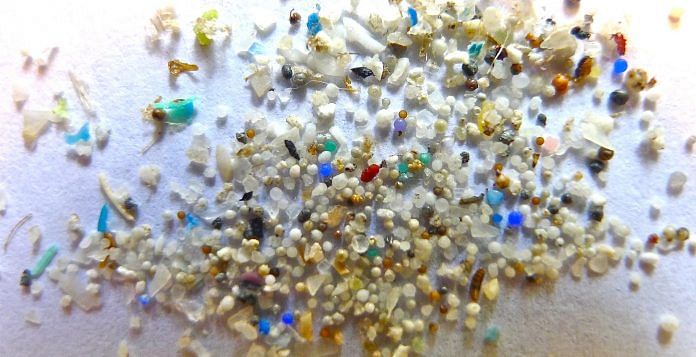Reporting science has become more mainstream in media around the world and India is also catching up quickly. But latest scientific research is published in a variety of journals, making it hard for readers to keep track. What’s harder is understanding the crux of a scientific finding with the relevant context and without misinterpretation. We at ThePrint focus on covering science news in India, but want our readers to be updated on the latest global findings as well.
ScientiFix, our weekly feature, will offer you a summary of the top global science stories of the week, with links to the best sources to read them. It’s your fix to stay on top of the latest in science.
Microplastics are making more food chains toxic
A lot of our microplastics — such as the glitter and beads in our face washes — end up in the ocean. They sink to the sea floor and are ingested by organisms, which causes their death. But it turns out the polluting effect of microplastics is not just confined to the ocean. Insects often tend to eat them, poisoning themselves as well as birds and other creatures that prey on them. The Guardian has more.
DNA from elephant dung helps identify poaching cartels
Elephants have been poached for their tusks for decades now. In Africa, poachers, having killed much of the adult population, are going after feeding calves. This bit of information comes from confiscated tusk consignments.
Looking to learn more about the origin of the tusks, conservationists created a geographical dung DNA map of elephants, and then matched each individual to a tusk. By matching smuggling patterns in different consignments, they’ve managed to locate three cartels and even get some individuals arrested. Read the fascinating story on The Atlantic.
Also read: This is how plants communicate danger, and it’s trippy
Fossil with ‘identity crisis’ proved to be earliest-known animal
Over 500 million years ago, Earth was covered with misshapen, blob-like creatures that made up the most complex life on the planet. Today, scientists classify all lifeforms into one of five kingdoms: Plants, animals, fungi, monera (unicellular organisms that don’t have a nucleus, like bacteria), and protists (an assortment of creatures that are eukaryotic, i.e. having nucleus in their cells).
Dickinsonia is a popular fossil that scientists kept reclassifying to figure out where it fits. Turns out, it was an animal and existed millions of years before we thought the first animals arrived on our planet. Here’s Nat Geo with more.
An illegal trade is killing the birds of Lakshadweep
India’s rich biodiversity is not well appreciated or even understood by the local populace. Situated on an uninhabited island in the Lakshadweep archipelago is a bird sanctuary protected under the Indian Wildlife (Protection) Act, 1972. The island of Pakshi Pitti is full of protected nesting seabirds. However, people of a nearby island believe the bird eggs to be medicinal, and this has led to a flourishing trade that is killing off birds on this hard-to-reach island. The Wire has the details.
Also read: The world gets it first shark that eats plants
Trump’s US takes another step back on climate change
The US Environmental Protection Agency has overturned an Obama-era law that sought to curb methane emissions. Methane, one of the most powerful greenhouse gases, is emitted during oil drilling.
The law is one of the many environmental protection guidelines that have been overthrown in the US under President Donald Trump, who has made no secret of his scepticism for climate change.
The ramifications will be felt over the next few decades, as the US enables the release of more pollutants in the air while the rest of the world takes steps to curb global warming. Read The New York Times report here.
Tiny Japan probe deploys tinier rovers on asteroid
JAXA’s Hayabusa2, which reached asteroid Ryugu in June this year, has deployed two of its four hopping rovers on the asteroid, sending us a shadow-selfie in the process.
The rovers hop around the asteroid, inspecting, with no wheels due to Ryugu’s low gravity. Each hop in any direction can last as long as 15 minutes. The orbiter itself is expected to make contact with the asteroid next month, where an arm will extend out and fire a bullet to the surface. The ejected material will then be captured and brought back to Earth. The Planetary Society has the detailed report here.



